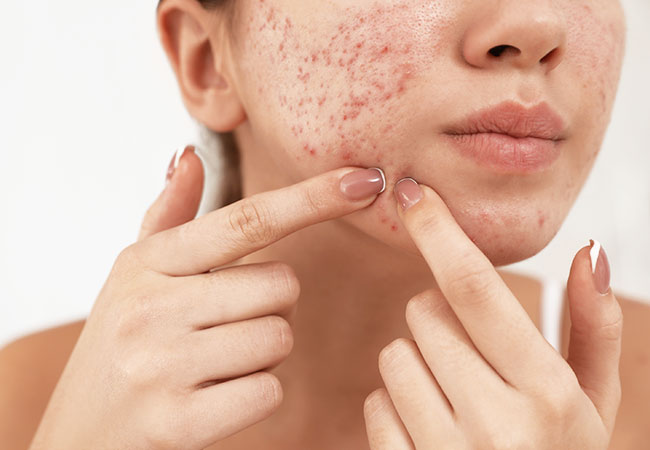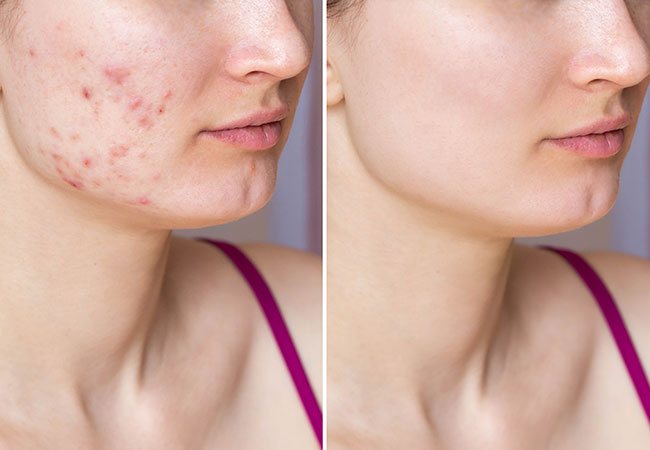Acne
Acne is a skin concern that causes whiteheads, blackheads, pimples, etc., and usually appears on the face, forehead, chest, upper back, and shoulders. Acne mainly occurs when your hair follicles become clogged with oil and dead skin cells and are most commonly seen among teenagers. It, however, affects people of all ages.
Acne could be categorized between inflammatory and non-inflammatory acne. Blackheads, whiteheads, pustules, cysts, papules and nodules exist within these categories. Acne can often be very stubborn and can keep coming back. Because the pimples and bumps heal very slowly, often a new pimple appears by the time the first ones clear out. This can be very frustrating and could cause emotional distress if the condition gets severe, leaving marks and scars.
What causes Acne?
Although acne is caused by the clogging of hair follicles with oil and dead skin cells, there are other factors that can cause or even accelerate the condition. Some such factors are anxiety, stress, menstrual cycle, genetics, using oil-based make-ups, too much humidity, etc. Medications such as certain birth control pills or corticosteroids could also increase acne. A poor diet accompanying any of these factors could also lead to an increase in acne.

Before & After

Acne Treatments
Medications
At PHI CLINIC, we understand that Medicine is a Science and it’s Practice an Art. Our experts strive to analyze the underlying
Chemical Peel
A medicated peel uses a chemical solution to remove layers of skin, revealing the more youthful skin underneath.
Laser Therapy
Laser Photofacial treatment uses pulses of IPL (Intense Pulsed Light) to reverse signs of aging by altering your skin at the cellular level.
Microdermabrasion
Microdermabrasion is a minimally invasive procedure used to renew overall skin tone and texture. It can help improve the
